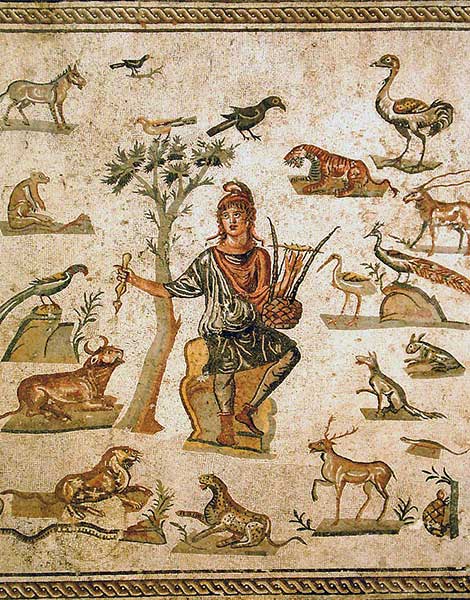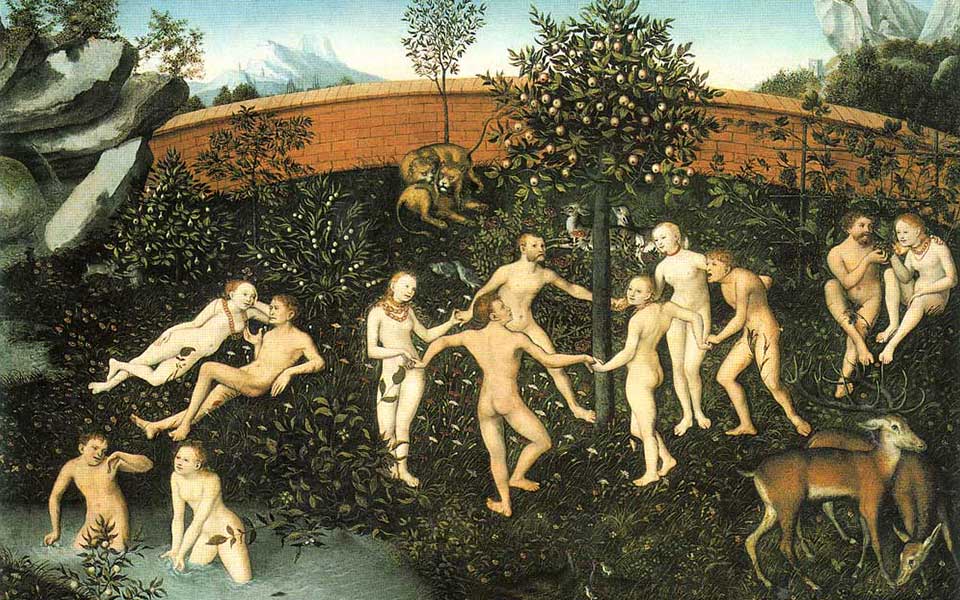When Gods Were Tourists: Greece’s Sacred Travel Hubs
Before passports and package tours, pilgrims...

"Pythagoras Advocating Vegetarianism" (1618–1630) by Peter Paul Rubens was inspired by Pythagoras's speech in Ovid's Metamorphoses. The painting portrays the Pythagoreans with corpulent bodies, indicating a belief that vegetarianism was healthful and nutritious.
© Peter Paul Rubens - https://www.royalcollection.org.uk/collection/403500/pythagoras-advocating-vegetarianism
Veganism, the abstinence of the use of all animal products, is one of the fastest growing lifestyle movements in the world. Unfairly dismissed by some in the past, especially in the West, as a fringe movement or “fad diet,” it has more recently acquired a cool hipster cache, with an exponentially growing number of people, driven by reasons of health, ethics, environmental sustainability, and a philosophy that rejects the commodification of animals, to embrace cruelty-free living.
Here in Greece, long renowned for its love of meat (souvlaki, kontosouvli, spit-roasted lamb, etc.), veganism is becoming increasingly popular, especially among the younger generations. While the concept is still relatively new in mainstream Greek society, more and more shops and restaurants are offering plant-based products. And while fasting is a long established tenet of the Greek Orthodox faith – the current Lenten fasting period calls on the Faithful to follow a vegan diet until Easter – the traditional Greek diet has always been blessed with a plethora of vegan and vegetarian options.
If veganism is becoming an increasing popular lifestyle choice now, then what were the attitudes to meat eating and the exploitation of animals in the ancient Greek past? And were there people who abstained from the use of ALL animal products?

A vegan twist on a Greek classic: meat-free souvlaki, using jackfruit.
© Shutterstock
We know that veganism isn’t new. In fact, our early hominin ancestors were heavily reliant on plant-based diets that included nuts, seeds, fruits and wild cereals. Indeed, anthropologists have suggested that the earliest humans likely turned to meat in times of hardship, when resources of plant foods were in short supply. Even as our Palaeolithic (Old Stone Age) ancestors developed increasingly sophisticated tools for cutting and scraping, the image of the “hunter-gatherer” should more readily be understood as “forager-scavenger” – early humans as opportunistic scavengers rather than full-time hunters.
With the rise of agriculture in the Neolithic (New Stone Age), first developed in the Fertile Crescent of the Middle East around 10,000 BC, the earliest farmers continued to rely on a largely plant-based diet, only turning to meat for special occasions and group feasting. It was during this time that dairy products were first consumed – milk and early forms of cheese and yoghurt.
For the vast majority of human history, therefore, meat was seen as a rare treat, which largely debunks the claim that the so-called “Paleo-diet” should be heavily based on meat. But when did veganism and vegetarianism become a lifestyle based on social justice and ethics? For that, we need to turn to some of the world’s oldest religions (Hinduism, Buddhism and Jainism) and ancient philosophical schools that taught non-violence to all living forms, among them the ancient Greek Pythagoreans and the mysterious Orphics.

Pythagoras, ancient Greek philosopher. From Thomas Stanley, (1655), The history of philosophy: containing the lives, opinions, actions and Discourses of the Philosophers of every Sect, illustrated with effigies of divers of them.

Orpheus surrounded by animals. Ancient Roman floor mosaic, from Palermo, now in the Museo archeologico regionale di Palermo.
© Giovanni Dall'Orto.
To the ancient Greeks, strict vegetarianism (abstaining from meat and sometimes eggs) was called “abstinence from beings with a soul.” While Greek literature and art is studded with images of people eating meat, famously in the Homeric epics, in general, meat consumption was certainly not as common as it is today. For many, meat would have been prohibitively expensive, reserved only for special occasions, but as a specific way of life, abstaining from animal foods was limited to a small number of religious and philosophical sects.
The earliest evidence for the theory and practice of abstaining from meat comes from the 6th century BC, when the Greek mathematician and philosopher Pythagoras (c. 570-495 BC) voiced his moral objection to the mistreatment of animals. While no authentic writings of the philosopher have survived, it was argued by later authors, notably the Roman poet Ovid, that he likened the consumption of meat to cannibalism: “What else is this but to devour our guests, and barbarously renew Cyclopean feasts? While Earth not only can your needs supply, but, lavish of her store, provides for luxury …”
Eudoxus of Cnidus (c. 400-350 BC), a student of Plato, wrote that “Pythagoras was distinguished by such purity and so avoided killing and killers that he not only abstained from animal foods, but even kept his distance from cooks and hunters.”
Followers of Pythagoras also shunned the sacrifice of animals and the ritual offering of meat to the gods, believing that it was not necessary to inflict pain and suffering on another sentient being. This belief soon influenced other philosophers, Empedocles (c. 494-434 BC), who was said to have refused to perform a blood sacrifice following victory in a horse race at Olympia.

The Golden Age (c. 1530) by Lucas Cranach the Elder.
Later Pythagoreans, absorbed into the Platonic school of philosophy, further advocated that abstention from meat and fish fostered a healthy body and enhanced the search for “Arete,” excellence and moral virtue.
Similarly the mysterious Orphics, an ascetic sect based on the mythical poet Orpheus whose views and practices mirrored elements of Pythagoreanism, adhered to a strict vegetarian diet that also excluded broad beans, believing that they contained the souls of the dead.
Scholars have argued that concepts of vegetarianism in ancient Greece were largely based on the idea of universal nonviolence and the transmigration of the soul after death. During the “Golden Age” of the beginning of humanity – akin to the Abrahamic belief in the Garden of Eden – there was no need for hunting, livestock breeding, and the slaughter of animals, and that all sentient beings lived in blessed harmony with the Earth – ideas that were recorded by the epic poet Hesiod (8th century BC) and Plato, among others.
While it is clear that strict vegetarianism was a well-known practice in ancient Greece, we have no way of knowing if any of the adherents of these religious and philosophical schools of thought extended it to mean the total abstention from ALL animal products – i.e. meat, fish and seafood, eggs, cheese, milk, yoghurt, honey, and the use of leather hides and fur.
Nevertheless, arguments about the ethical treatment of animals abounded in Greek philosophical circles since at least the 6th century BC. As such, the recent surge in veganism and other diets that reduce the exploitation of animal products on moral grounds is certainly nothing new.
Before passports and package tours, pilgrims...
From temples and festivals to front...
Professor Debby Sneed explores disability in...
As Greeks gather for their Tsiknopempti...